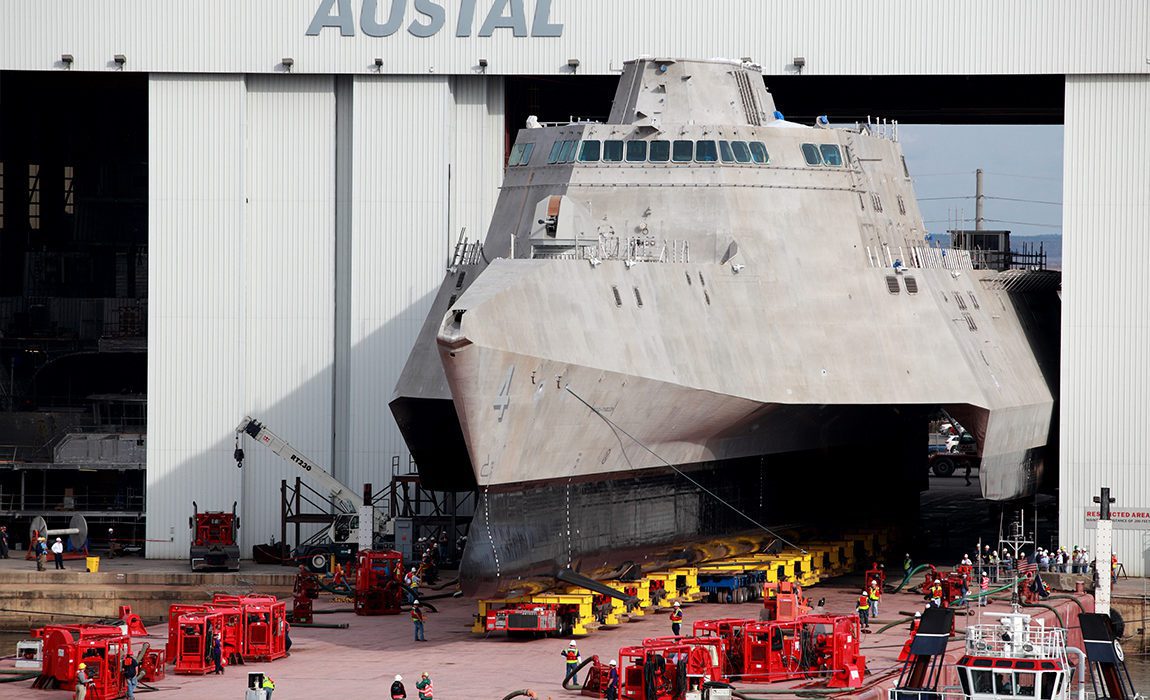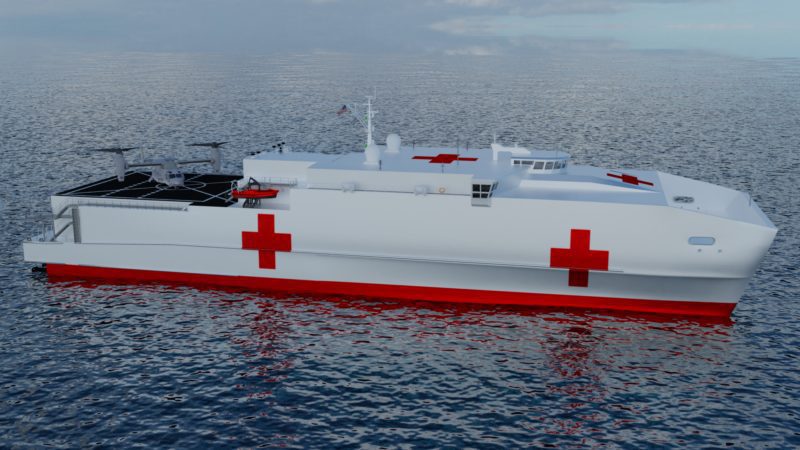A Deep Dive Into US Navy’s Epic Shipbuilding Failure
by Joaquin Sapien (ProPublica) In July 2016, warships from more than two dozen nations gathered off the coasts of Hawaii and Southern California to join the United States in the...

Updated: April 21, 2023 (Originally published September 30, 2021)
by John Konrad (gCaptain) You maybe confused by this headline but so are we. USS Freedom (LCS 1), the lead ship of the Freedom-variant Littoral Combat Ship, recognized little more than a decade of naval service during a decommissioning ceremony at Naval Base San Diego this week. It was “envisioned to be a networked, agile, stealthy surface combatant” but most naval experts agree the program was an expensive failure.
Depite the monumental failure of the Littoral Combat Ship (LCS) platform – which naval experts have called “A Beautiful Disaster” – the US Navy is constructing 10 more LCS ships right now and have an additional one of these failed platform on order.
Because of the many failures in the program the USS Freedom has served mostly as a test and training ship. According to the US Navy the decommissioning of LCS 1 “supports department-wide business process reform initiatives to free up time, resources, and manpower in support of increased lethality” but most experts cite the true problems as huge cost overruns, mechanical problems, and changing geopolitical trends made this relatively new ship obsolete.
Related News: The Littoral Combat Ship and the Folly of Concurrency
“I just wanted to point out the fact that, you know, we’ve had class after class after class of ship procurement and construction that has essentially failed. And it’s failed us in providing national defense, presence, deterrence overseas,” Congresswoman Luria said during a Congressional hearing in February 2020. “And it’s failed the sailors who are working on those ships. They’re the ones who are doing the right thing, but we’re giving them platforms that can’t do the job, that are not fully developed, that are not mature in design before we start building them.”
Of the four original Feedom Class LCS ships the USS Independence has never deployed and served as a test platform, Freedom recently deployed to U.S. Southern Command. Fort Worth and Coronado have each deployed once, but both experienced technical issues that forced expensive repairs during their deployments. In May, Admiral Gilday, Chief Of Naval Operations, said it would cost approximately $2.5 billion to upgrade the first four hulls of the Freedom Class LCS to prepare them for combat. So instead, he is decommissioning them.
What is most shocking about this story is not the utter failure of the LCS platform, nor it’s immense costs. Most shocking is the fact the Navy is still building more. In 2019 the U.S. Navy announced it awarded contracts for another three Littoral Combat Ships, bringing the total number of vessels ordered so far to over 30. Austal received two of the awards while Lockheed Martin received the third.
Two LCS ships were comissioned this year, The USS Oakland in April 2021 and the USS Mobile in May 2021. The USS Minneapolis-Saint Paul, built by Fincantieri Marinette Marine, was also scheduled to be comissioned this year but a problem with the propulsion system was discovered. The Navy did not provide a timeline for when she is expected to be commissioned or go into service. The USS Marinette, also built by Fincantieri Marinette Marine, was launched in 2020 but still has not been comissioned.
According to the US Naval Register of ships, the following 10 LCS ships are still under construction:
LCS LCS 21 MINNEAPOLIS-SAINT PAUL
LCS LCS 23 COOPERSTOWN
LCS LCS 25 MARINETTE
LCS LCS 27 NANTUCKET
LCS LCS 29 BELOIT
LCS LCS 30 CANBERRA
LCS LCS 31 CLEVELAND
LCS LCS 32 SANTA BARBARA
LCS LCS 34 AUGUSTA
LCS LCS 36 KINGSVILLE
Plus the USS Navy has once more LCS on order that has been authorized but is not yet under construction, the LCS Pierre.
“Failure this comprehensive is incredible, even for our broken defense procurement system,” said the late Senator McCain way back in 2014, years before the Navy ordered even more LCS ships. “This failed program that received congressional approval to spend more than $12 billion.”
“I’m not buying it,” Luria told USNI News in May of this year. “We need to look at what we have today and how we can use it and how we can use it most efficiently. The idea of divesting of current platforms that still have usable service life in order to invest in something that we might develop the technology for in the future – paired with our poor track record on [developing new] platforms – just makes absolutely no sense to me.”
If decommissioning the LCS Freedom makes no sense to Representative Luria, what makes even less logical sense is this: Why are we still building more of a failed ship design that has cost taxpayers tens of billions of dollars?

And like a bad infomercial just wait, there is more… In addition to decommissioning teenage Littoral Combat Ships while still building more, the navy has also laid up the 11 year old USNS Spearhead the first of the Spearhead class Expeditionary Fast Transport ships. Yet despite the failures of this ship, the Navy is building more and is considering building new hospital ships based off this same failed design.
“Ten years after the introduction of the first Spearheads, the Navy is still trying to find missions for them.” Says maritime historian Dr. Sal Mercogliano, producer of the popular YouTube series ‘What is Going on With Shipping‘. “Current plans have two being converted into hospital transports, one into an autonomous ship platform, and more on the way. Current tests include loading Marines onboard for forward presence, use as a training platform with allied navies, and other missions that don’t require a Navy combatant.”
Related Article: Dear Admiral Kitchener: San Diego Urgently Needs A Fireboat

Sign up for gCaptain’s newsletter and never miss an update

Subscribe to gCaptain Daily and stay informed with the latest global maritime and offshore news
Essential news coupled with the finest maritime content sourced from across the globe.
Sign Up